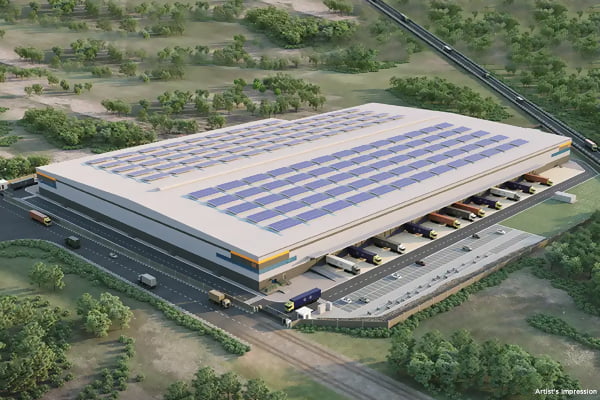Choosing to lease warehouse storage is a common decision for companies in need of storage space for their inventory and goods. While purchasing warehouse storage involves a significant upfront investment, warehouse for lease offers a more flexible and cost-effective alternative. In this blog, we will explore the advantages of warehouse leasing and how companies can fully leverage this option.
Table of Contents
ToggleAdvantages of Warehouse Leasing:
1. Availability of Capital
Leasing a warehouse storage allows companies to avoid the costs associated with building or buying a warehouse space. The capital saved can be redirected towards crucial business investments, such as acquiring supplies or expanding operations, enhancing cash flow and preserving financial resources.
2. Tax Deductions
Warehouse storage space leasing can provide tax benefits, allowing businesses to deduct rental expenses. Additionally, the depreciation of the leased warehouse may be eligible for deduction as a business expense, contributing to overall tax reduction.
3. Cost Savings on Repairs and Maintenance
With warehouse leasing, the responsibility for building maintenance and repairs lies with the landlord. This arrangement translates to significant cost savings and alleviates the burden of overseeing building upkeep for the tenant.
4. Time Savings
Renting a warehouse space eliminates the need for companies to search for a location, plan the layout, obtain permits, and construct the warehouse. This time-saving aspect enables businesses to focus on core operations while entrusting warehouse logistics to the landlord.
5. Flexibility in Moving and Expanding
Warehouse storage leasing provides the flexibility to relocate or expand without the complications of leasing or selling owned real estate. Businesses can seamlessly transition to a new warehouse by ending the existing lease.
6. Reduced Red Tape and Paperwork
Compared to owning a warehouse, leasing a warehouse involves less administrative red tape and paperwork. Landlords typically handle legal documentation and regulatory compliance, streamlining the process for the tenant.
Consider These Factors While Leasing A Warehouse Space.
1. Establish Your Needs: Clearly define the dimensions, location, and features required in a warehouse to focus the search effectively.
2. Research Potential Locations: Evaluate locations based on proximity to customers, suppliers, and transportation hubs.
3. Consult a Commercial Real Estate Agent: Engage with an agent to assist in property selection, negotiate lease terms, and guide through the leasing process.
4. Review Lease Terms: Thoroughly examine lease terms, including rental fees, lease duration, and additional costs or levies.
5. Property Inspection: Before finalising the lease, inspect the property to ensure it meets the company’s requirements and is in good condition.
6. Sign the Lease: After a comprehensive review of lease terms and property inspection, sign the agreement to commence using the leased space.
Conclusion
While warehouse leasing offers numerous advantages, it is a process that requires careful consideration, planning, and adherence to the steps mentioned above. Despite the potential benefits, the leasing process can be demanding in terms of time, money, and effort for companies seeking warehouse space. Hence, we suggest organisations looking for warehousing services in Chennai contact Hiranandani Industrial Parks.
FAQ
Optimising warehouse operations involves streamlining processes, enhancing efficiency, and leveraging technology. Implementing inventory management systems, adopting automation, and optimising layout design are key strategies.
Renting a warehouse offers flexibility, cost savings, and scalability. It allows businesses to adapt to changing storage needs without the commitment of ownership and is a more economical option.
Optimization in warehouse management refers to the strategic use of resources, technology, and processes to maximise efficiency. It includes inventory optimization, space utilisation, and workflow efficiency for overall operational improvement.
















